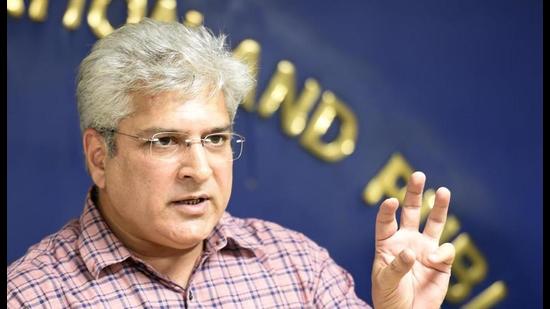Accessible public spaces key to fight congestion: Delhi minister Kailash Gahlot
Joining the discussion on how to make cities more accessible at the Connect Karo conference of World Resources Institute, India, Delhi transport minister Kailash Gahlot said the obvious way to do so is by strengthening public transport.
New Delhi: For cities facing the problem of congestion such as Delhi, the best way to make public spaces more accessible is by making such pockets pedestrian friendly, and keep in mind the needs of the disabled while building public infrastructure, urban development experts said on Thursday at a conclave.

Joining the discussion on how to make cities more accessible at the Connect Karo conference of World Resources Institute, India, Delhi transport minister Kailash Gahlot said the obvious way to do so is by strengthening public transport. He said after more than a decade Delhi has managed to increase its public bus fleet to over 6,700 buses.
“And the buck doesn’t stop at just bringing more buses. We have to look at ways to gradually reduce the private vehicles load in Delhi, or compel a section of them to transition to green fuel. Delhi government’s approach is multi-pronged, we are aiming to increase the city’s bus fleet to at least 10,000. We are simultaneously working to make most of the people in the city to switch to electric vehicles. We have launched the Delhi EV policy under which we are also working on building a robust charging station network across the city,” Gahlot said.
Giving an example of projects that were designed to make public spaces more accessible, Garima Gupta, managing director, Shahjanahabad Redevelopment Corporation (SRDC), said the dialogue was the key to the success of Chandni Chowk redevelopment project. “The old Delhi area is a super congested, highly populated zone. We have residents, traders, tourists, basically all sorts of people. The foundation stone for the project was laid back in 2011, but it just did not took off. Until 2018, when the actual work started, the ground work was mostly consultations. We had more than 24 consultation sessions with the stakeholders. The project is also a classic example of how works can be executed despite multiplicity of authority. This project had as many as 17 stakeholders and agencies involved,” she said.
Now that the entire 1.3 kilometre stretch has been pedestrianised, Gupta said the SRDC’s next focus is on facade redevelopment. “We will preserve the Havelis as they are. The work on this will start soon. Now the pedestrianised Chandni Chowk area has become such that we can find people taking a walk on the stretch even at midnight. We put a lot of thought even on something as small as the signages in the area. All of them are multilingual including Urdu and Punjabi,” she said.
Natalie Draisin, director, North America office and UN representative, FIA Foundation highlighted how a key focus area in making cities accessible should be the journeys to schools. “If people walk or cycle to schools, it will also boost the economy of all the shops falling on the route because wherever there is pedestrianisation, businesses pick up. People who walk or cycle find it easier to stop by look and pick up quick items from stores as compared to those in vehicles,” she said.
Draisin added that a thumb rule that should be followed without any leniency is restricting speed limits to 30 kmph on all roads around schools. “And this rule must be amplified through campaigns so that it becomes a culture which promotes children walking or cycling to school. The city of Bogota implemented this and their child fatalities in road accidents came down to 0 in 2018 from 50 in 2012,” she said.
Disability rights advocate and co-founder of Samarthyam, Anjlee Agarwal said if roads and public infrastructure are built keeping in mind the differently abled, then it will cover all segments of the society and there would not be any need of retrofitting anywhere.



